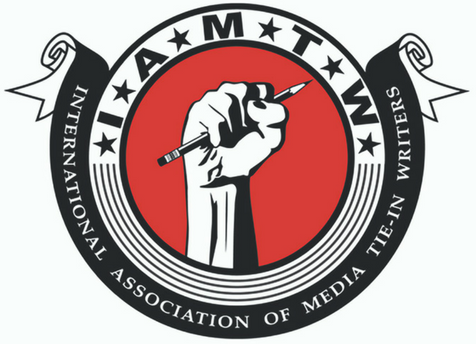(This essay is from our new IATMW charity anthology, Turning the Tied.)
SEE THE MOVIE! WATCH THE SHOW! READ THE BOOKS!
Max Allan Collins
Novels based on TV and movies – and novels on which TV and movies were based – were among my first literary enthusiasms, starting with the Whitman Young Adult hardcovers – the likes of Zorro, Maverick, and Gunsmoke. But it continued for me through junior high and high school with novelizations of Oceans 11 (by George Clayton Johnson, one of the screenwriters) and 77 Sunset Strip (by Roy Huggins, creator of the TV series), demonstrating that material that hadn’t made it into the film or TV show could turn up in a book. This was exciting to me, even as it illuminated the stories I loved on film and on TV. As late as college, I used the James Blish Star Trek collections of episode-based stories to catch up during the show’s last season, when I had belatedly boarded the Starship Enterprise before syndication for the greatest of all cult TV series had reared its head.
For many of us – reader and writer alike – the joys of movies and TV converge with our love of storytelling in prose form. We want more of our favorite characters, and relish a novel’s ability to invite us to climb inside a story and not just passively watch it.
I got involved with tie-in writing when, as the then-scripter of the Dick Tracy comic strip, I was enlisted to write the novel of the Warren Beatty film. That was, happily, a successful book that led to my writing novels for In the Line of Fire, Air Force One, Saving Private Ryan, and many others, including Maverick, that favorite of my childhood. Eventually I wrote TV tie-ins as well, in particular CSI and its spin-offs. Finally I got the opportunity to work with the Mickey Spillane estate to write Mike Hammer novels – a dream job, since Spillane had been my favorite writer growing up and Hammer my favorite character.
The founding of the IAMTW came out of a series of panels about tie-ins at San Diego Comic Con. Lee Goldberg, a rare example of a TV writer/producer who also wrote tie-in novels, was an especially knowledgeable and entertaining participant on those panels. He and I shared a frustration that the best work in the tie-in field was ignored by the various writing organizations that gave awards in assorted genres, including mystery, horror, and science-fiction.
Individually, we began poking around, talking to our peers, wondering if maybe an organization for media tie-in writers wouldn’t be a way to give annual awards and to grow this disparate group of creative folk into a community. I don’t remember whether Lee called me or I called Lee, but we decided to combine our efforts. What came out of that was the International Association of Media and Tie-in Writers and our annual Scribe Awards, as well as the Faust, our Life Achievement Award.
For more than a decade, Lee and I headed up the organization before finally turning the reins over to a new generation. I have no doubt that tie-in writing will continue as long as gifted writers have an interest in (as we sometimes say) “playing in other people’s sandboxes.”
All this began – before home video made collecting movies and whole seasons of TV shows possible – as a way for fans to relive a film or have extra “episodes” of a favorite TV show. We’ve evolved into something more elaborate and demanding for ourselves and readers, perhaps because people like Lee and myself (if I may be so immodest) brought a love of film and TV to the table. He and I fought to get recognition for tie-in writers, so often dismissed as “hacks” and overlooked by reviewers and awards committees.
This volume is evidence of why that attitude was – and is – so short-sighted. It reflects some of our best tie-in writers tackling favorites of theirs in short story form.
And perhaps that is what separates the IAMTW members from those came before in the tie-in field – we are not professionals taking an assignment merely because that’s what professionals do; but professionals who began as fans and continue to work out of a love for the films, TV and books that made us become professional writers in the first place.

